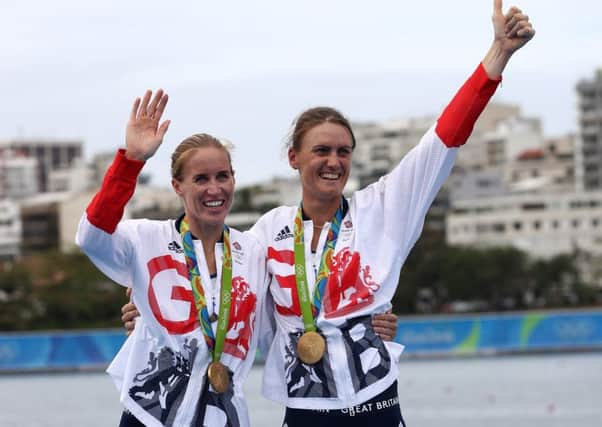Leaders: Enjoy Olympic success despite funding questions


As the Olympic Games draw to a close tomorrow, we must congratulate the British team on a record-breaking haul of medals.
Few predicted this success, and there was justified concern that after the bonanza in London four years ago, normal service would be resumed four years later.
Advertisement
Hide AdAdvertisement
Hide AdIn fact, the team looks set to close these Games within touching distance of the 2012 medal tally, which is an amazing performance.
To have reached second in the medals table during the Games is also extraordinary.
The Scottish contingent in the team have likewise recorded their greatest medal success at an overseas Olympics.
Among the highlights, golds went to rower Heather Stanning in the women’s pairs with Helen Glover, and cyclists Callum Skinner and Katie Archibald in the team sprint and team pursuit respectively. That’s not to mention Andy Murray retaining his Olympic singles title and another deserved gold medal. What a missed opportunity it is that sport’s traditional victory parade is to be a closed doors affair in Scotland this year, denying the public the chance of a glimpse of the heroes we have cheered on from 6,000 miles away.
Team GB delivered so many incredible performances, such as the three golds in the velodrome for Jason Kenny and two for his fiancee, Laura Trott. Meanwhile Mo Farah became the first UK track and field athlete to win a third Olympic gold. His quest to do the same in the 5,000m final tonight could provide yet another Rio highlight for Britain.
The Games have also been a big success for the Brazilian city after all the concerns and bad publicity over security, the Zika virus and construction delays.
If we’re being honest, the opening ceremony was somewhat underwhelming, save for some touches of creative brilliance.
The delivery of the action itself has been a hit, other than the green diving pool and fears about a “current” in the swimming pool.
Advertisement
Hide AdAdvertisement
Hide AdYet it has been hard to ignore dissenting voices this week, who have dared to criticise the cost of GB success.
Is the financial investment justifiable?It is always important to ask searching questions about strategy, even if it has reaped rich rewards in terms of the medal haul.
Does a gold medal inspire a nation, or is it a moment of glory – a genuine feelgood factor, but a fleeting one? If it is just a moment’s satisfaction, that’s an expensive thrill at £5.5 million a time.
Having said that, this is not a matter to get hung up about while our competitors are still trying their hearts out to gain reward for what in many cases will be a lifetime’s dedication to their sport.
We wish them well, and thank them all for thrilling us over the last two weeks.
It has been, again, a very special time in British sporting history. There are questions to ask about the future, but for now, let’s just enjoy the team’s achievement and their efforts in the remainder of these Games. After all, we’ve paid for it.
Can Classics clobber Candy Crush?
The suggestion that it would be better for the brains of primary school children to study Latin and ancient Greek than to play video games isn’t the biggest revelation of 2016.
Baroness Susan Greenfield reckons that this would help improve attention spans and mental agility, while computer games are linked to behavioural problems.
Advertisement
Hide AdAdvertisement
Hide AdThe first point is certainly debatable, because few pupils would engage positively with a subject they can’t identify with. Her citing of the work of Greek poet Homer as a means by which children can improve their cognitive ability is an unfortunate choice; kids will be far more enthused by Homer Simpson – and who can blame them?
But most parents would recognise concern over the potential effect of video games. Children love them, and they are addictive, but what benefit is there in playing such games for hours on end, day after day?
That is not to say that video games are necessarily harmful in themselves. The negative effect they have is that while children are playing these games, they are not learning anything of educational value.
This also has consequences for another of this week’s hot topics, the obesity crisis. With one or two exceptions, video games are adding to the problems of poor dietary habits because they get in the way of exercise.
However, the digital era will continually introduce new technology destined to capture the attention of youngsters. There is no turning back on that.
Baroness Greenfield’s theory might be correct, but the vision of children reaching for the Classics instead of Candy Crush is beyond the fantasy of even virtual reality.